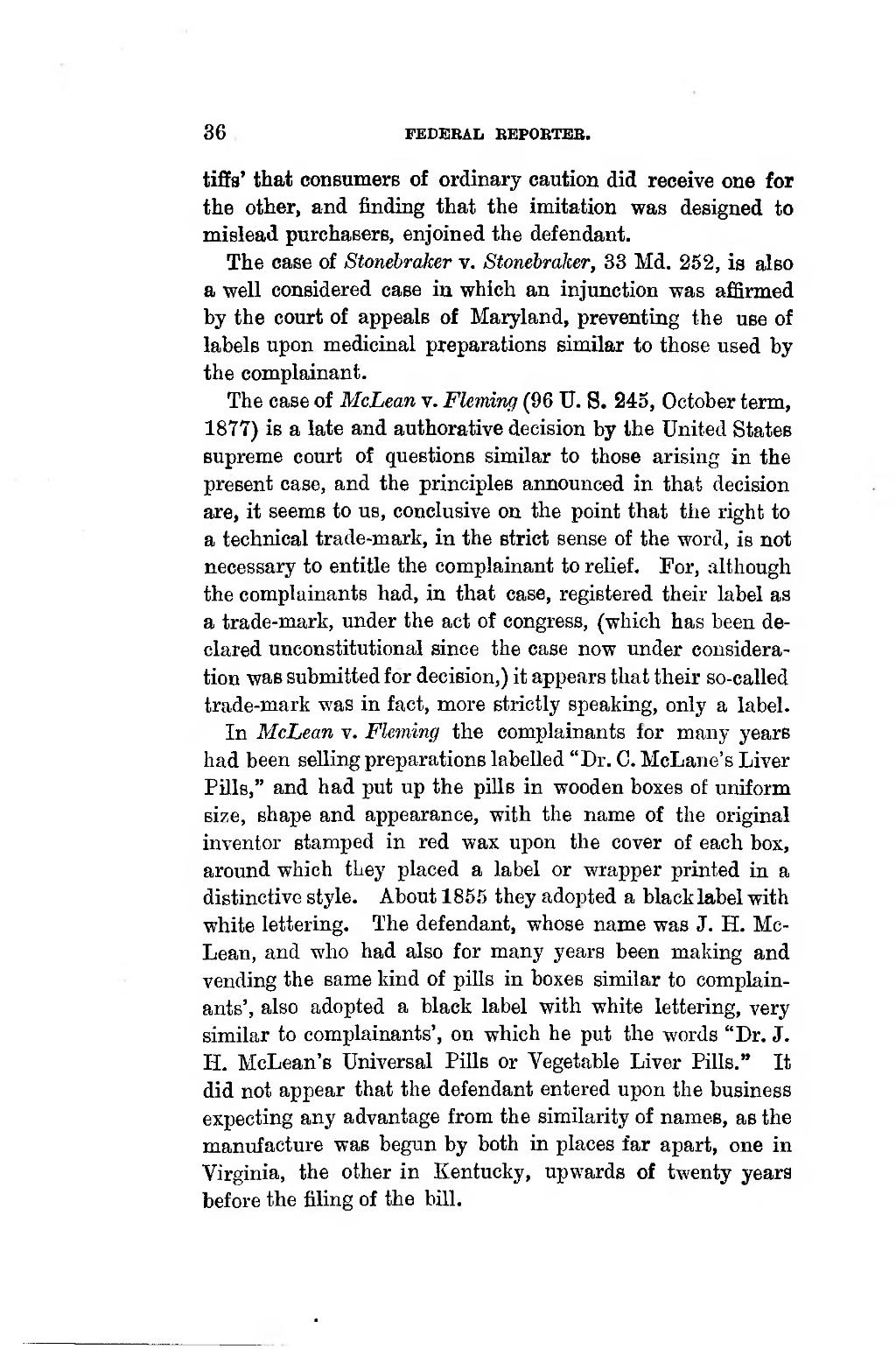36 FEDERAL REPORTER. �tiffs' that consumers of ordinary caution did receive one for the other, and finding that the imitation was designed to mislead purchasers, enjoined the defendant, �The case of Stonebraker v. Stonebraker, 33 Md. 252, is also a well considered case in which an injunction was affirmed by the court of appeals of Maryland, preventing the use of labels upon medicinal preparations similar to those used by the complainant. �The case of McLean v. Fleming (96 U. S. 245, October term, 1877) is a late and authorative decision by the United States supreme court of questions similar to those arising in the present case, and the prineiples announced in that decision are, it seems to us, conclusive on the point that the right to a technical trade-mark, in the strict sense of the word, is not necessary to entitle the complainant to relief. For, although the complainants had, in that case, registered their label as a trade-mark, under the act of congress, (which has been de- clared unconstitutional since the case now under considera- tion was submitted for decision,) it appears that their so-called trade-mark was in fact, more strictly speaking, only a label. �In McLean v. Fleming the complainants for many years had been selling preparations labelled "Dr. G. McLane's Liver Pills," and had put up the pills in wooden boxes of uniform size, shape and appearance, with the name of the original inventer stamped in red wax upon the cover of each box, around which they placed a label or wrapper printed in a distinctive style. About 1855 they adopted a black label with white lettering. The defendant, whose name was J. H. Mc- Lean, and who had also for many years been making and vending the same kind of pills in boxes similar to complain- ants', also adopted a black label with white lettering, very similar to complainants', on which he put the words "Dr. J. H. McLean's Universal Pills or Vegetable Liver Pills." It did not appear that the defendant entered upon the business expecting any advantage from the similarity of names, as the manufacture was begun by both in places far apart, one in Virginia, the other in Kentucky, upwards of twenty years before the filing of the bill. ��� �
Page:Federal Reporter, 1st Series, Volume 1.djvu/44
This page needs to be proofread.
